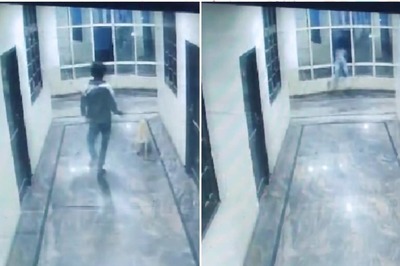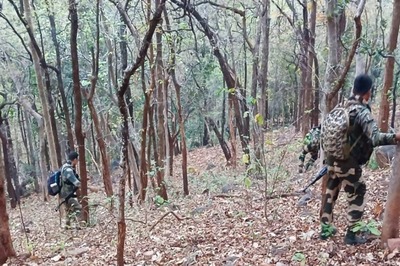
views
Commercial pilot licenses will now be valid for ten years, with the government amending rules as part of efforts to further improve ease of doing business in the aviation sector. Till now, the validity of Commercial Pilot License (CPL) was for five years and after completion of that period, it had to be renewed.
The civil aviation ministry amended the Aircraft Rules, 1937. Among various changes made, the validity of licenses in relation to Airline Transport Pilot License (ATPL) and CPL holders has been increased from five years to ten years.
“This change is expected to reduce administrative burden on pilots and aviation authorities like DGCA, promoting a more streamlined and efficient licensing process,” the ministry said in a statement on Monday.
Besides, rules have been amended to address concerns related to the display of lights in the vicinity of an aerodrome.
It has also been clarified that the term ’light’ encompasses lantern lights, wish kites, and laser lights. Also, the government’s jurisdiction over those exhibiting such lights has been extended from 5 kilometres to 5 nautical miles around an aerodrome.
“It is made explicit that the government possesses the authority to take action against individuals displaying lights that disrupt the safe operation of aircraft or pose hazards to the operating crew.
“Should such lights remain unattended for 24 hours, the government is empowered to enter the location and extinguish them,” the ministry said. Simultaneously, the matter should be reported to the relevant police station for legal action under the Indian Penal Code (IPC).
When the source of the observed light is unidentifiable or if it shifts locations, the airport or airline operator is obligated to promptly report the incident to the local police station, initiating potential criminal proceedings.
Another amendment is that the requirement for validation of foreign licenses has been removed. “This change signifies aligning the regulations with the evolving needs of the aviation sector,” the ministry said.
Further, the requirements related to continued competence for Air Traffic Controller (ATC) license holders have been liberalised. According to the ministry, this change offers increased flexibility to accommodate situations with limited movements or watch hours.
ATC license holders must complete a minimum of ten hours of simulated exercises, including emergencies. Subsequently, they must undergo a skill assessment for their respective rating within ten consecutive days of commencing these exercises, it said.
The ministry said the amendments to the Aircraft Rules, 1937, notified on October 10, mark a crucial shift in promoting ease of doing business and ensuring safety and security within the aviation sector.
India is one of the fastest growing aviation markets in the world. Airlines are expanding their aircraft fleet and will be hiring more pilots to cater to rising air traffic demand.

















Comments
0 comment